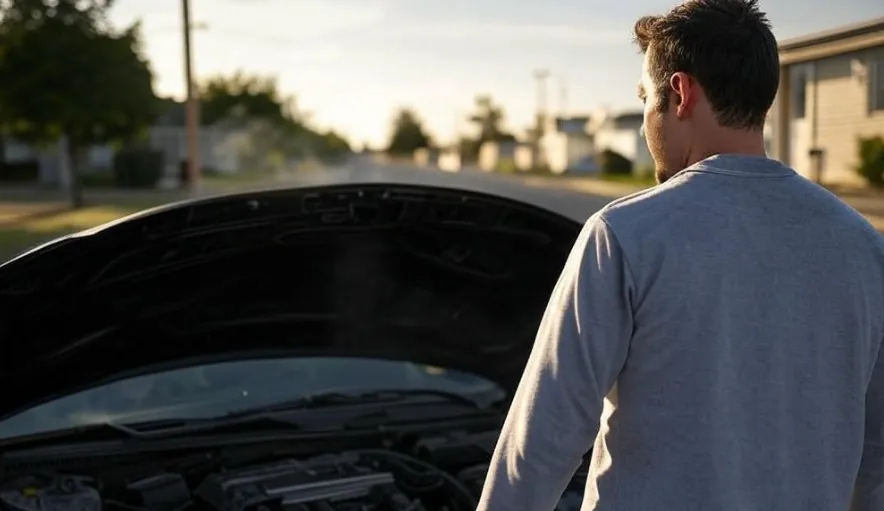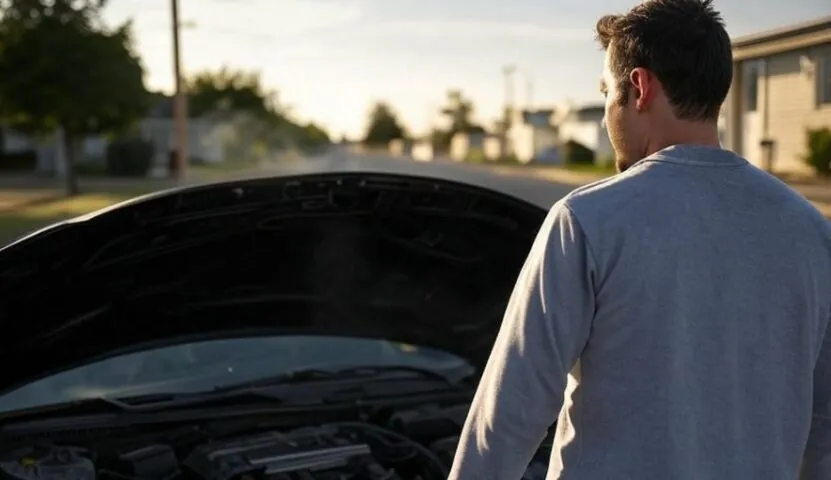
Share Post:
Buying a used BMW sounds like a dream for any car enthusiast, promising luxury, performance, and that unmistakable thrill of German engineering. However, not all deals are as sweet as they appear.
Many sellers know how to shine up a lemon, hoping buyers will miss the red flags that could lead to regret down the road. From hidden mechanical issues to shady title histories, spotting these traps can be the difference between driving off with a gem or ending up with a headache.
With every BMW, there’s a backstory, and the smart buyer needs to look beyond the surface to make sure that story checks out.
Here, we will dig deep into the signs that reveal when a seller might be trying to pull a fast one, so you can avoid the traps and find a BMW that truly delivers.
1. Inconsistent Vehicle Identification Number (VIN)
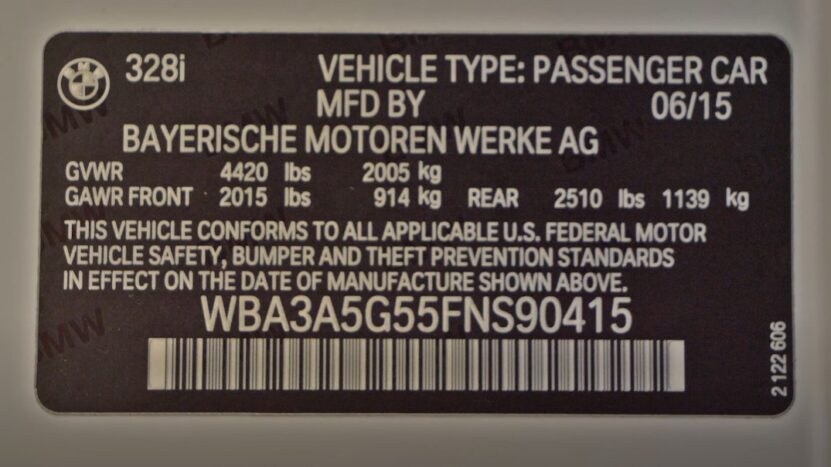
A mismatched VIN is a major warning sign that the car may have a questionable history or even be stolen. Always verify that the VIN on the car matches the one on the title and in all documents provided by the seller. You can check the VIN in infotracer.com or use trusted services like Carfax or AutoCheck to get a full history report.
- Compare: Ensure the VIN on the car, title, and vehicle history report align.
- Inspect All VIN Locations: BMWs typically have VINs stamped in multiple locations—dashboard, engine, and door frame. If they don’t match, something is wrong.
Solution: If the VINs don’t match, walk away. Sellers who cannot provide clear documentation are likely hiding something.
2. Visible Rust or Corrosion
Rust, especially in critical areas, can affect safety and performance, and addressing it is often costly. A BMW with noticeable rust could indicate that the car hasn’t been well-maintained or has been exposed to harsh conditions.
- Where to Look: Focus on the undercarriage, door frames, wheel wells, and around the trunk.
- Interior Signs: Rust under seats or in the trunk could mean water damage, possibly from a flood.
- Touch and Tap: Surface rust can usually be removed, but deep rust is a dealbreaker. Tap around rusty areas to see if they feel solid.
Solution: If you spot any rust that compromises structural integrity, walk away. Minor rust on non-critical areas can be dealt with, but significant corrosion is often more trouble than it’s worth.
3. Mismatched Paint or Body Panels
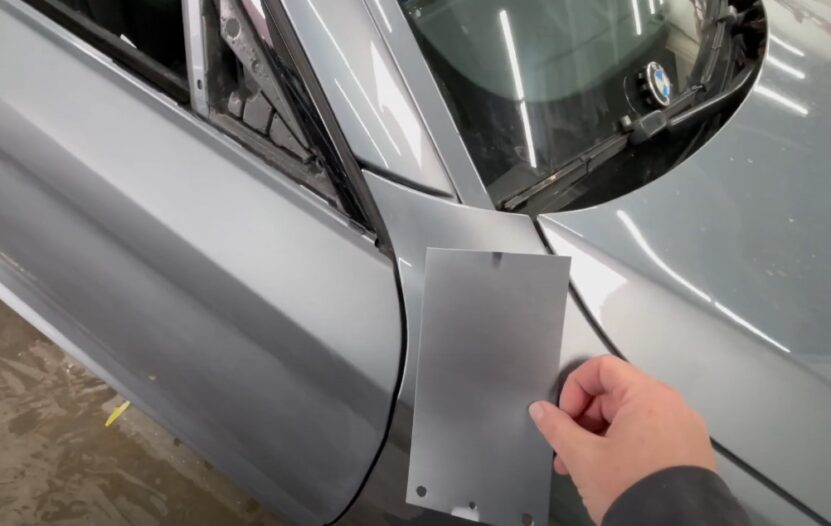
A car that looks off-color in some areas or has body panels that don’t align properly may have been in an accident. Often, sellers attempt to cover this up with fresh paint, but the differences in shading can give it away.
- Check for Color Differences: Inspect under different lighting conditions, especially around the doors, hood, and trunk.
- Panel Alignment: Look at gaps between panels. Uneven gaps may indicate that body parts were replaced poorly.
- Paint Overspray: Check seals, badges, and trim for signs of overspray, which suggests a rushed repaint job.
Solution: If the car appears to have undergone significant bodywork, request documentation on the repairs. If the seller cannot provide any, consider walking away.
4. Unusual Odors Inside the Car
A moldy or musty smell may suggest water damage, while a heavy air freshener can be a red flag that the seller is trying to mask odors.
- Smell for Mustiness: Musty odors often indicate water leaks or flood damage, which can lead to electrical and structural issues.
- Look Under the Carpet: Lift the carpet in the trunk and under the seats if possible. Dampness or water staining could mean a history of water intrusion.
- Sniff Test: If there’s a strong smell of cleaner or freshener, the seller might be hiding a smell you don’t want to discover later.
Solution: A strong odor is a good reason to investigate further. If you notice any signs of water damage, think twice before purchasing.
5. Spongy or Unresponsive Brakes
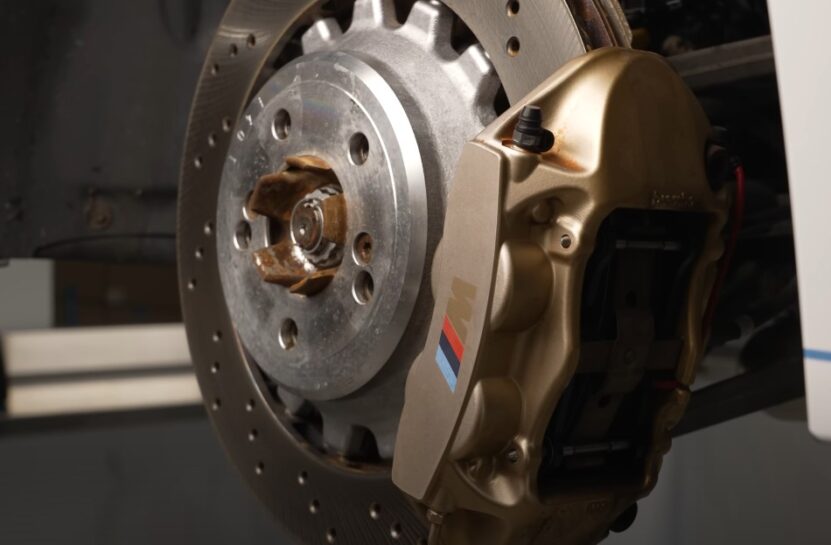
Brakes that feel soft, spongy, or require extra pressure could indicate serious brake system issues. A high-performance vehicle like a BMW requires responsive brakes for safe handling, so any brake concerns are a serious red flag.
- Check Brake Pedal Feel: During the test drive, press the brakes firmly. Any delayed response or excessive softness can signal a brake fluid leak or worn-out components.
- Inspect Brake Components: Look at the rotors and pads if possible. Excessive wear, rust, or grooves are signs of neglect.
- Listen for Sounds: Squeaking or grinding during braking can indicate worn brake pads or rotors.
Solution: If the brakes feel compromised, ask for a recent maintenance record. If the seller can’t provide proof of recent brake work, consider factoring potential repair costs into your budget or walking away.
6. Worn Suspension Components
A worn suspension impacts ride quality and vehicle handling, which is especially crucial for a BMW. Bumpy, unstable rides or noticeable bouncing during a test drive usually suggest issues with the shocks or struts.
- Bounce Test: Push down on each corner of the car. If it bounces more than once, the shocks or struts might be worn out.
- Check for Noise: Listen for clunking or rattling sounds, which can point to worn suspension joints or bushings.
- Observe Tire Wear: Uneven tire wear patterns often reveal underlying suspension issues.
Solution: Suspension repairs can be costly, especially for luxury models. If the ride feels unstable or bumpy, calculate the repair costs carefully before considering a purchase.
7. Inconsistent Maintenance Records
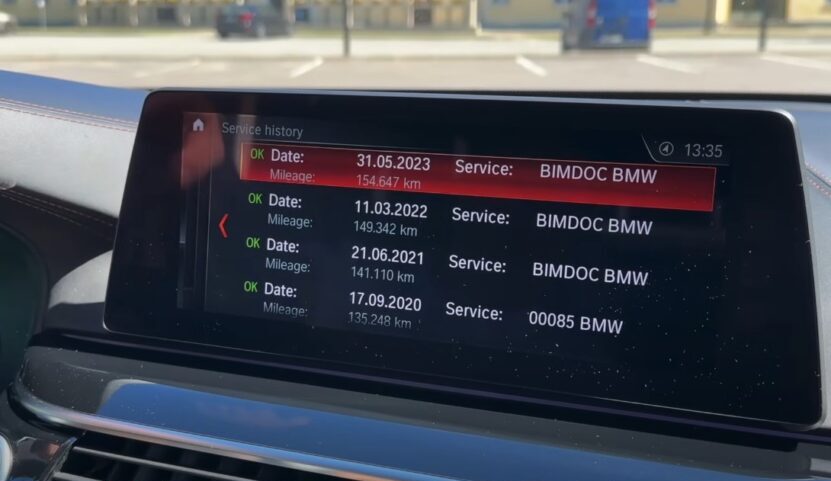
A well-maintained BMW should come with a solid record of regular service. Missing or inconsistent maintenance records suggest potential neglect, which can lead to costly repairs down the road.
- Ask for a Full Service History: BMWs need specific maintenance at regular intervals. Without records, it’s difficult to confirm that the car received proper care.
- Look for BMW Specialist Service: Repairs done by certified BMW specialists indicate that the owner prioritized quality maintenance.
- Confirm Major Services: Check if critical services, like timing belt replacement (if applicable) and transmission service, have been done on schedule.
Solution: If there’s no reliable record, proceed with caution. A lack of maintenance documentation can hide underlying issues that could lead to expensive repairs soon after purchase.
8. Multiple Previous Owners
A long list of previous owners might not always mean trouble, but it raises questions about why the car changed hands so frequently. BMWs are generally reliable, so if multiple owners let it go quickly, there could be unresolved issues.
- Look for Patterns: If each owner kept the car for a short period, it might have recurring problems that led to frequent resales.
- Ask for Explanations: A reputable seller should be willing to explain why the car had so many owners.
- Verify Ownership Timeline: Use the vehicle history report to check for rapid ownership changes, which can hint at hidden mechanical issues.
Solution: If the car has had many owners in a short time frame, be cautious. This could signal ongoing issues that no one wanted to fix. Proceed only if you’re comfortable with the car’s history or if it passes an independent inspection.
9. Unwillingness to Allow Independent Inspection
@sharpedealership Transparency at it’s finest. Video inspections are a common practice at SHARPE BMW. #videoinspection #bmw #service #carrepair #dealershiplife ♬ original sound – SHARPE Cars
A seller who refuses to let you have the car inspected by a trusted mechanic is a major red flag. This reluctance often signals that the seller is hiding issues that they don’t want uncovered by a professional.
- Ask Directly: Request a pre-purchase inspection upfront. An honest seller will understand your desire for reassurance.
- Be Wary of Excuses: If the seller claims they’re in a hurry or offers vague reasons for declining, think twice.
- Insist on an Inspection: A full mechanical and electrical inspection by an independent specialist can reveal hidden issues.
Solution: If the seller outright denies an inspection, walk away. A reliable car should stand up to scrutiny from a trained eye.
10. Outstanding Recalls
BMWs, like all vehicles, are occasionally subject to recalls for safety issues. Buying a car with unresolved recalls could mean inheriting serious problems.
- Check for Recalls: Look up the car’s VIN on the National Highway Traffic Safety Administration (NHTSA) website to see if there are any open recalls.
- Confirm Resolution: Ask the seller for proof that any recalls were addressed. BMW service records should indicate if recall-related repairs were completed.
- Look for Common BMW Recalls: Some BMW models have had issues with brakes, airbags, or fuel pumps, so check for any that apply to your prospective vehicle.
Solution: If the car has unresolved recalls, it’s a red flag. Insist the seller addresses them before purchase or factor in the cost and hassle of handling it yourself.
11. Suspiciously Low Price

While everyone loves a good deal, a price that seems too good to be true often is. Sellers sometimes list cars with underlying issues at low prices to lure buyers in quickly.
- Research Market Value: Compare the price against similar BMW models in your area to see if it’s significantly below average.
- Ask for an Explanation: If the price is unusually low, ask the seller directly why they’re willing to sell it for less.
- Consider Possible Problems: A low price may mean costly repairs are looming, so be cautious.
Solution: If the price doesn’t make sense, assume there’s a reason. The cost of repairs could offset any initial savings, so take time to investigate before you commit.
12. Title Issues
The car’s title should be clean and free of any liens, salvage notations, or branding that suggests past accidents. Title issues can make the car difficult to register, insure, or resell.
- Request a Copy: Ask for a clear title before negotiating. Verify that the title matches the seller’s information.
- Look for Out-of-State Titles: Sometimes, sellers use titles from states with lax regulations to hide past damage or flood history.
- Avoid Salvage Titles: Salvage or rebuilt titles mean the car was once deemed a total loss by an insurance company, which could lead to safety and reliability concerns.
Solution: If there are title complications, proceed cautiously. A clean title is crucial for a hassle-free purchase and future ownership.
13. Signs of Flood Damage

Flood-damaged cars may appear fine on the surface, but water can wreak havoc on a vehicle’s electronics and interior. Flood damage can lead to long-term issues that may not be immediately obvious.
- Look for Water Stains: Check for stains under the carpet, around the trunk, and in the spare tire compartment.
- Check Electronics: Flood damage often impacts electrical systems. Test every button, light, and control to ensure they function properly.
- Sniff for Musty Smells: Moldy or damp odors can hint at past water exposure.
Solution: If you detect signs of water damage, consider this a serious warning. Water exposure often leads to hidden problems that can be expensive to fix and could worsen over time.
14. Electrical Problems
BMWs come equipped with advanced electronics, but these systems can develop faults over time, especially if they’ve been exposed to moisture or poorly maintained.
- Test All Electronics: Turn on every function, from the air conditioning to the infotainment system, to check for glitches or malfunctions.
- Look for Warning Lights: Dashboard warning lights can indicate serious issues. If any lights stay on, ask the seller about recent diagnostics.
- Check the Battery: BMWs are sensitive to battery condition, and a weak or aging battery could cause multiple electrical issues.
Solution: Electrical repairs can be costly and complex. If the electronics seem unreliable, ask the seller about past repairs and consider an inspection to assess the extent of the issues.
15. Unusual Engine Noises
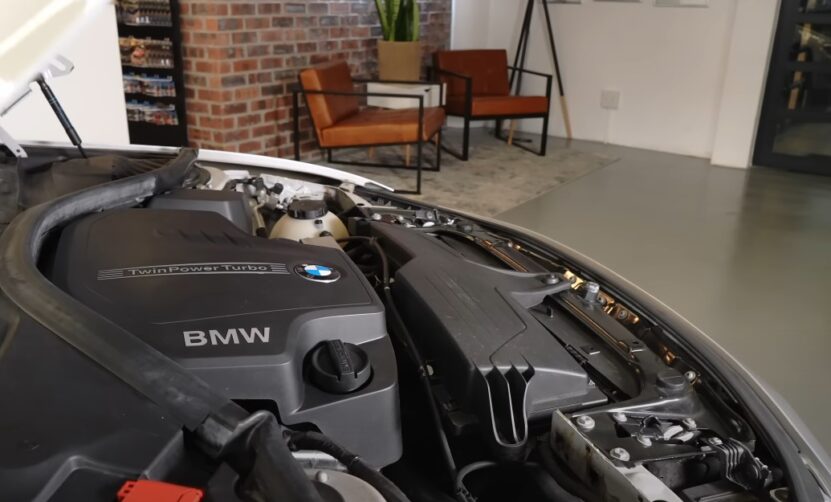
BMW engines are known for their smooth, powerful performance. However, weird engine noises like knocking, rattling, or other unusual noises could be a sign of deeper engine trouble, possibly pointing to neglect or mechanical wear.
- Listen Closely During Startup: Start the engine cold, as some noises are more apparent when the engine hasn’t warmed up.
- Identify Common BMW Sounds: Certain BMW models have specific sounds associated with normal function, so research beforehand to distinguish between normal and problematic noises.
- Pay Attention on the Test Drive: Listen for knocking, tapping, or grinding sounds that may indicate worn-out components like bearings or timing chains.
Solution: Unusual engine noises should be taken seriously. Request a mechanic’s inspection if you hear anything concerning, as engine repairs can be costly.
16. Unexplained Modifications
Aftermarket modifications can be a red flag, especially if they affect the vehicle’s performance or warranty status. Modifications can suggest that the car was driven hard or not maintained according to BMW’s standards.
- Inspect for Non-Stock Parts: Look for changes in exhaust systems, air intakes, or suspension. These modifications can impact reliability.
- Evaluate Interior Modifications: Alterations like seat covers, aftermarket electronics, or dash changes could mask previous damage or wear.
- Confirm Modifications with the Seller: Ask why certain modifications were made. If the seller can’t provide an explanation, they might be hiding something.
Solution: Modifications may add character, but they can complicate repairs and impact resale value. Proceed cautiously with modified vehicles, especially if you’re looking for original BMW performance.
17. High Mileage Without Maintenance Records
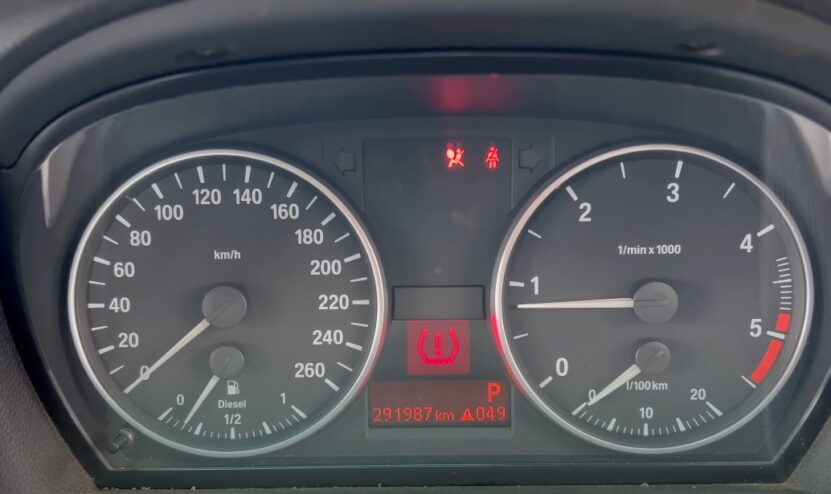
Mileage itself isn’t necessarily an issue for BMWs, as they’re built to last, but high-mileage vehicles demand a consistent maintenance history. Without documentation, you’re left guessing about the car’s upkeep.
- Request Specific Records: Regular oil changes, brake replacements, and other high-mileage services should be documented.
- Check Major Service Intervals: BMWs often require major services at specific intervals. Look for proof that these were completed on schedule.
- Consider High-Mileage Parts: High mileage without records can signal wear on components like timing chains and water pumps.
Solution: If the mileage is high and records are missing, you may face unexpected repair costs. Ensure you have documentation before finalizing the deal.
18. Seller’s Reluctance to Answer Questions
An honest seller should be transparent about the car’s history. If they’re vague or hesitant to answer straightforward questions, it could indicate hidden issues.
- Ask Direct Questions: Ask specific questions about service history, previous ownership, and any repairs. Evasive answers may signal a lack of honesty.
- Gauge Their Response: If the seller seems irritated or deflects, they may be hiding something about the car.
- Watch for Inconsistent Details: If the story changes or the seller contradicts themselves, consider it a warning.
Solution: A good seller should be willing to provide clear, consistent information. If they aren’t open, it’s best to walk away.
19. Pressure to Close the Deal Quickly

Sellers sometimes rush buyers to prevent them from noticing red flags. A seller pushing you to “act fast” often has something to hide.
- Take Your Time: Be wary if the seller insists on a quick sale or claims someone else is about to buy the car.
- Request Time for Inspection: Reputable sellers will allow you time for a mechanic’s inspection without pressure.
- Hold Firm on Your Pace: A good deal will wait for you. Don’t be rushed into a purchase that feels off.
Solution: Refuse to be pressured. A rushed decision increases the chance of overlooking important details that could cost you later.
20. Unverified Vehicle History Report
A reliable vehicle history report is essential for any used car purchase, especially for luxury models like BMWs, which have higher repair costs. Without one, you’re left guessing about the car’s past.
- Use Reputable Sources: Obtain a report from trusted providers like Carfax or AutoCheck.
- Review Accident History: Look for past accidents, title changes, and service records.
- Ask for the Seller’s Report: If the seller claims to have a recent report, verify its source and review it closely.
Solution: An unverified or missing vehicle history report is a red flag. Don’t rely on verbal assurances—insist on a report from a credible source before making any decisions.
Last Words
Buying a used BMW can feel like stepping into a world of luxury and performance, but it’s important to remember that not all shiny exteriors hold up to the promises they make. Keeping these red flags in mind, you’ll be equipped to avoid the pitfalls that turn a dream ride into a financial nightmare.
A BMW deserves careful consideration and attention, and with the right approach, you’ll find a car that lives up to its legacy. Be savvy, ask questions, and trust your instincts. When the right car comes along, it will be well worth the search.
Related Posts:



